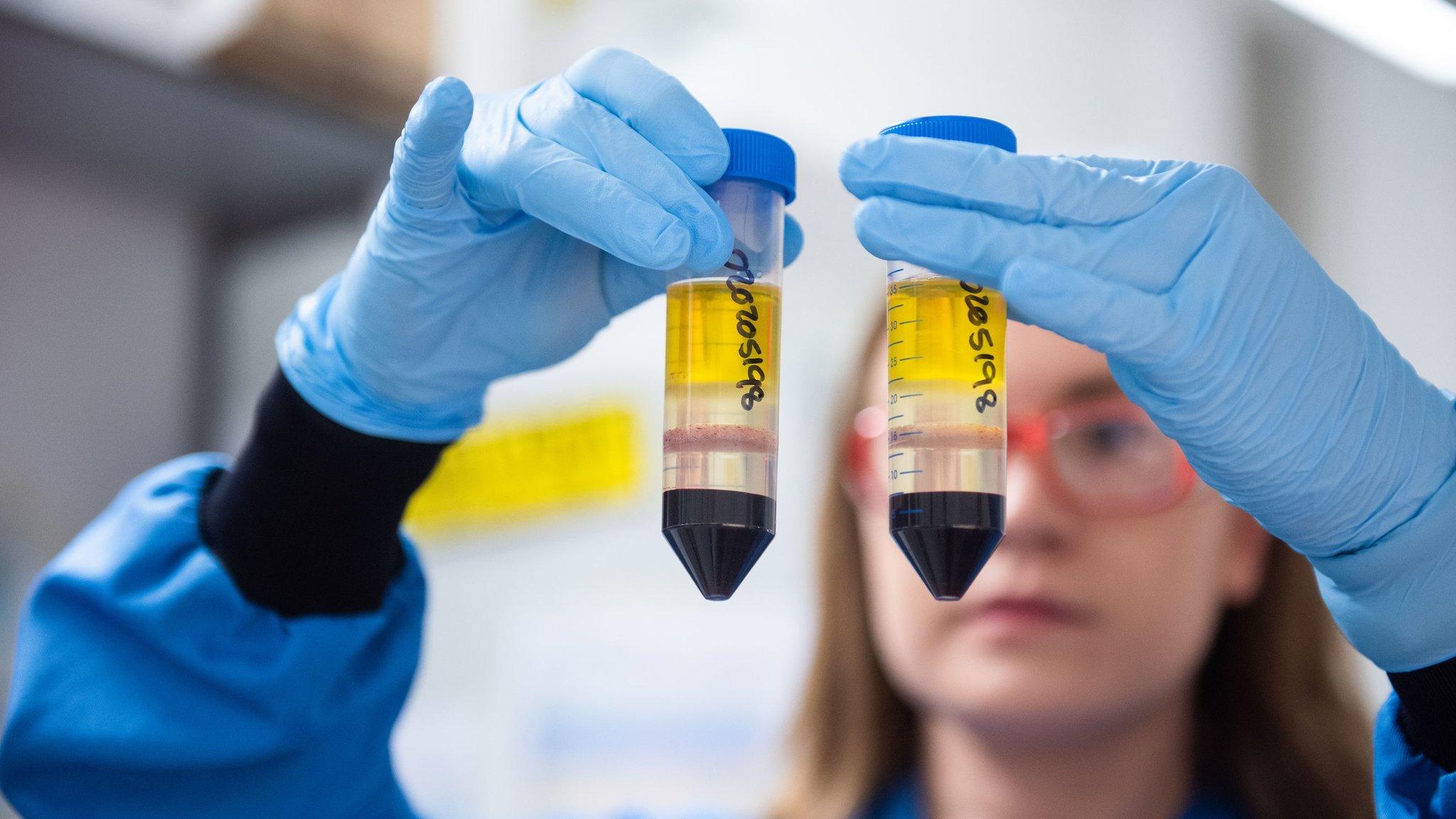Vaccine research group marks 30 years of saving lives
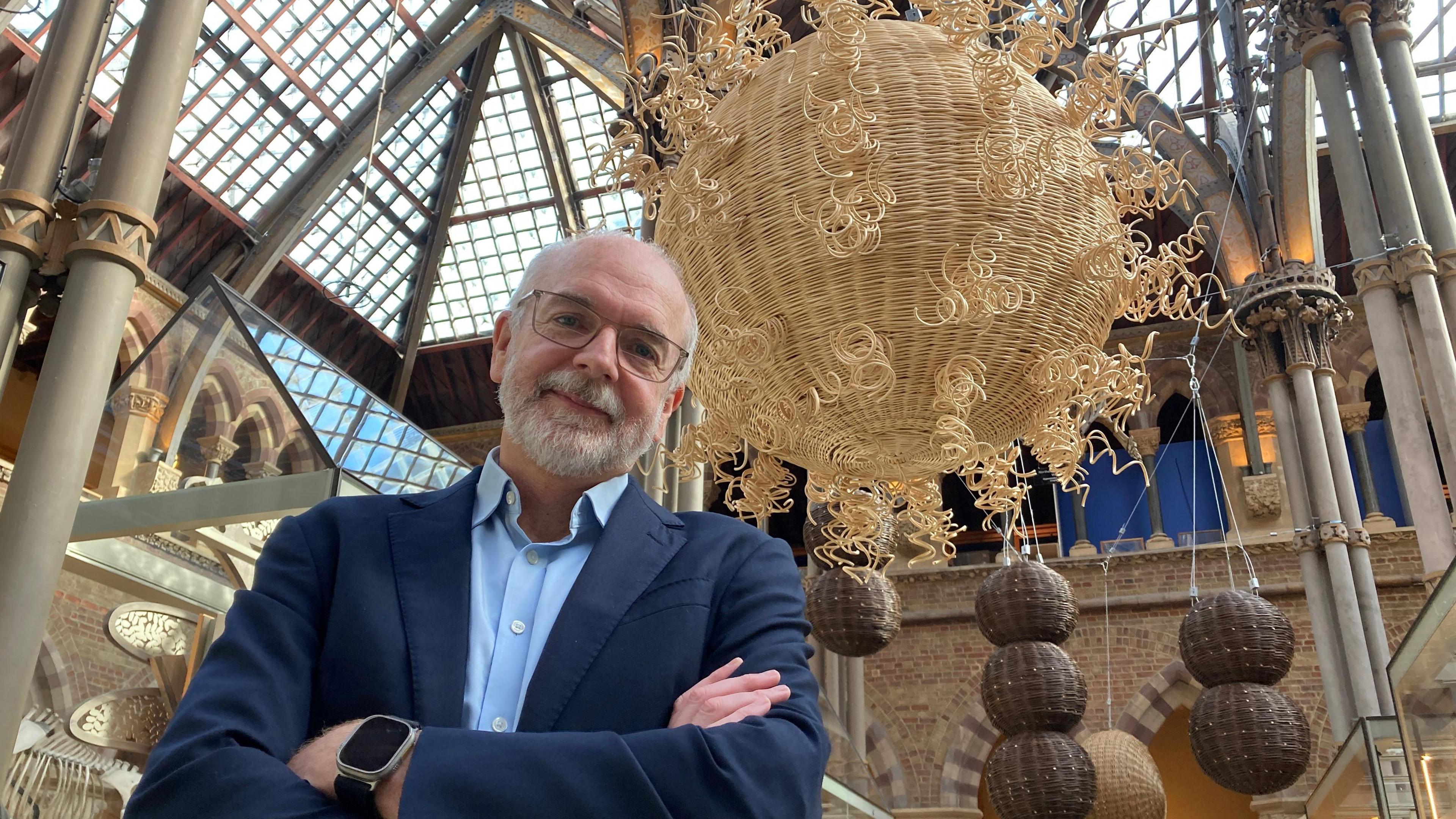
Prof Sir Andrew Pollard, director of the Oxford Vaccine Group, said it had been exciting to see the artwork (pictured behind him) come to life
- Published
A pioneering vaccine development organisation has marked its 30th anniversary by unveiling a specially commissioned art installation.
The Oxford Vaccine Group (OVG) was established in 1994 and has gone on to develop inoculations for some of the world's deadliest diseases, including malaria, meningitis and Covid-19.
The group is part of the University of Oxford and the new artwork will be on display at the institution's Natural History Museum until the start of next year.
The Deadly Six: Oxford's Battle with the Microbial World features 3D sculptures woven in willow to represent diseases for which the OVG has created a vaccine.
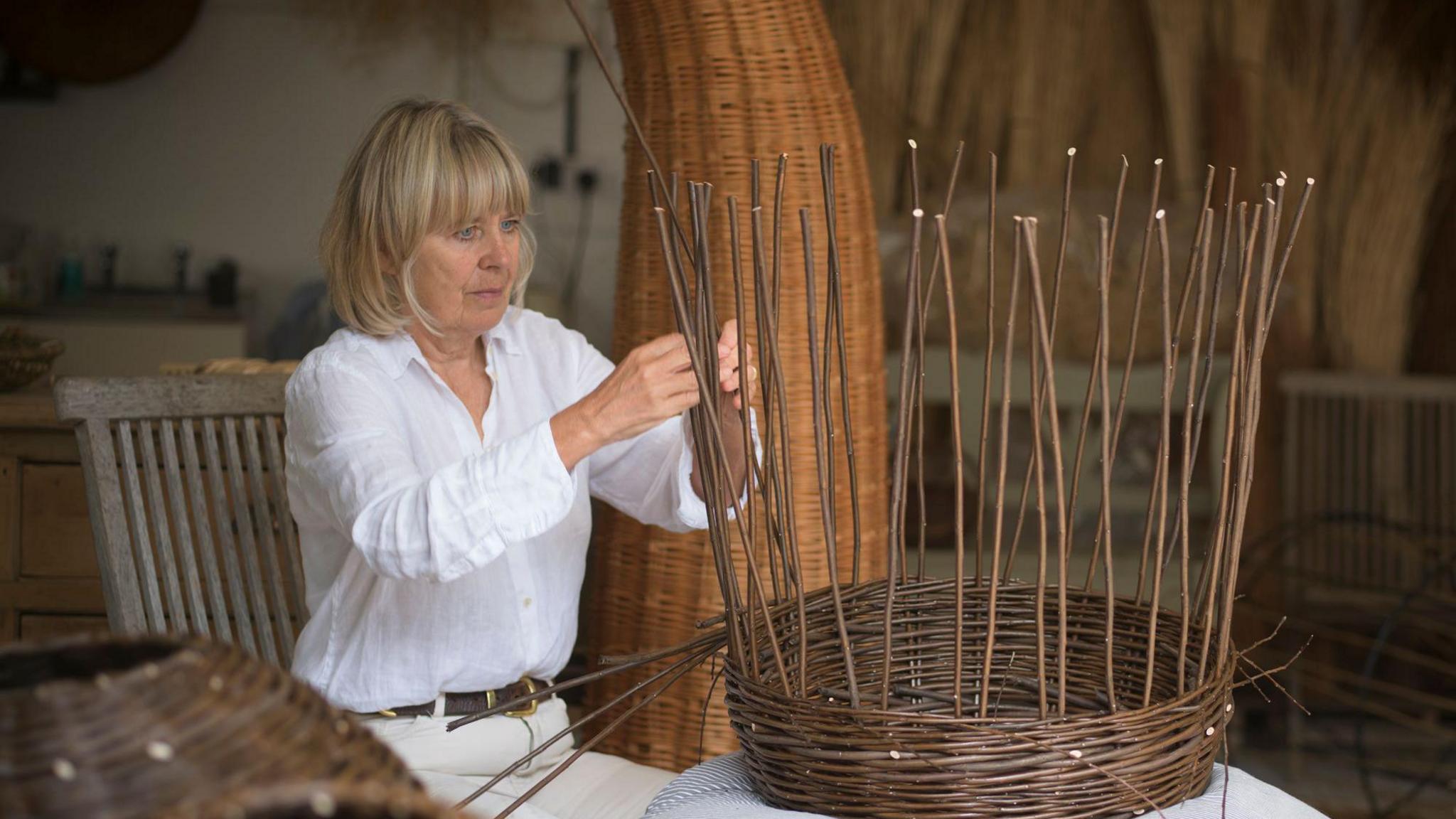
The work was created by Scottish artist Angela Palmer
It features upscaled recreations of pneumonia, meningitis, typhoid, malaria, Covid and Ebola.
The group's director, Prof Sir Andrew Pollard, told the BBC it had been exciting to see Angela Palmer bring the past 30 years of work "to life in her artwork".
"The art is beautiful, and it's the most incredible way of representing those germs that are out there and are a threat to people," he said.
Ms Palmer said: "I was battling to find an alternative concept and came across a collection of strange, three-dimensional shapes woven in straw while on holiday.
"One particularly reminded me of the meningitis bacteria form, and it struck me that I could explore creating the entire installation in willow."
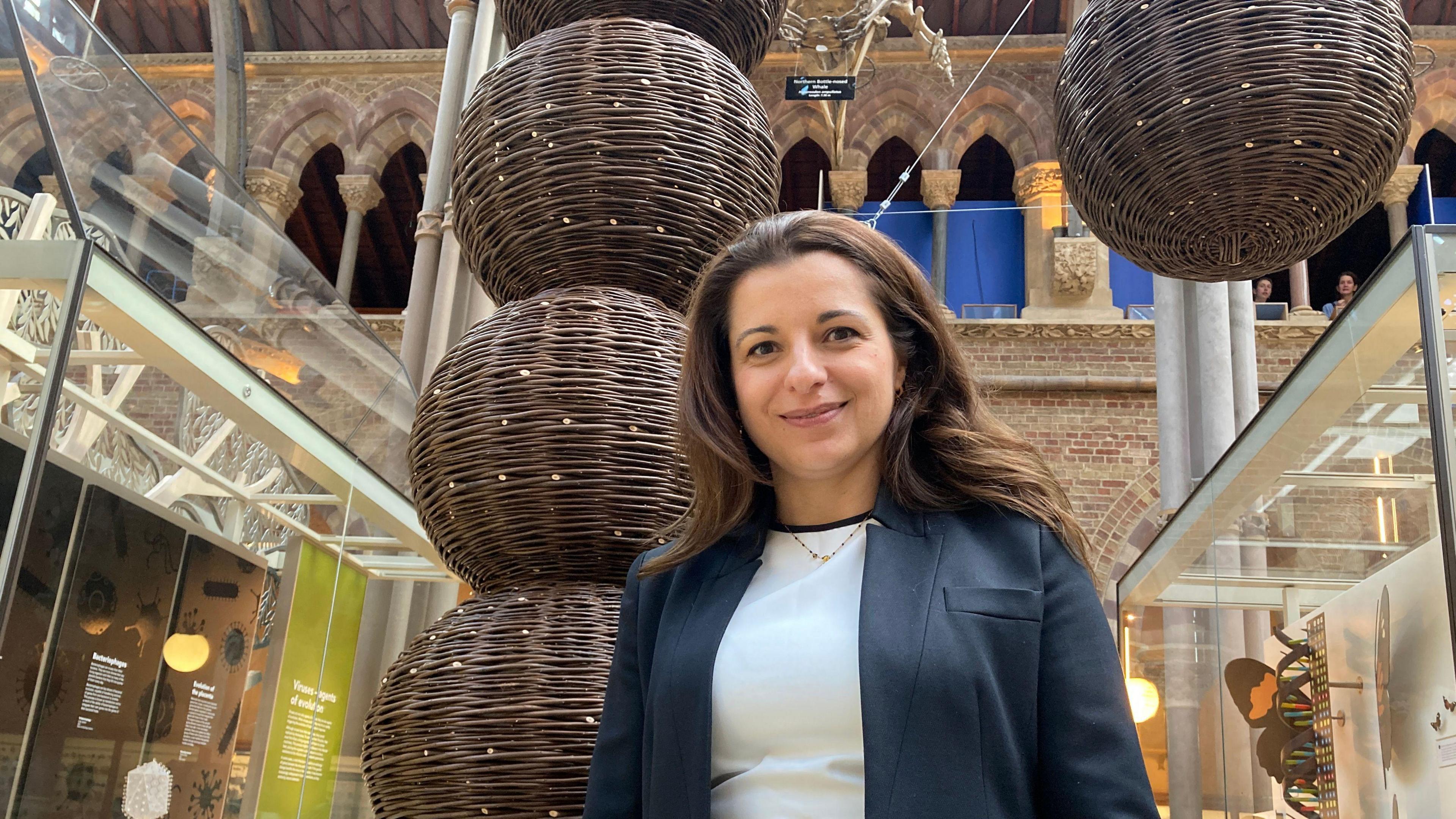
Prof Daniela Ferreira, standing with a sculpture representing the pneumonia molecule, said she hoped the art would help people learn
Prof Daniela Ferreira, who led one of the clinical sites at the heart of developing the Oxford-AstraZeneca Covid-19 vaccine, said the artwork was "wonderful".
"It's really important that we have this exhibition, so kids and everybody in the public can start to understand a bit more about these deadly pathogens."
The researchers said they were now focused on the future and developing vaccines that saved even more lives.
Prof Pollard said there was "still so much more to do".
"We have constant threats of diseases that we already know about and so we have to continue this mission to try to use science to combat the microbial threats that are out there that are a risk to all of us," he said.
Get in touch
Do you have a story BBC Oxfordshire should cover?
You can follow BBC Oxfordshire on Facebook, external, X (Twitter), external, or Instagram, external.
Related topics
- Published12 July 2024
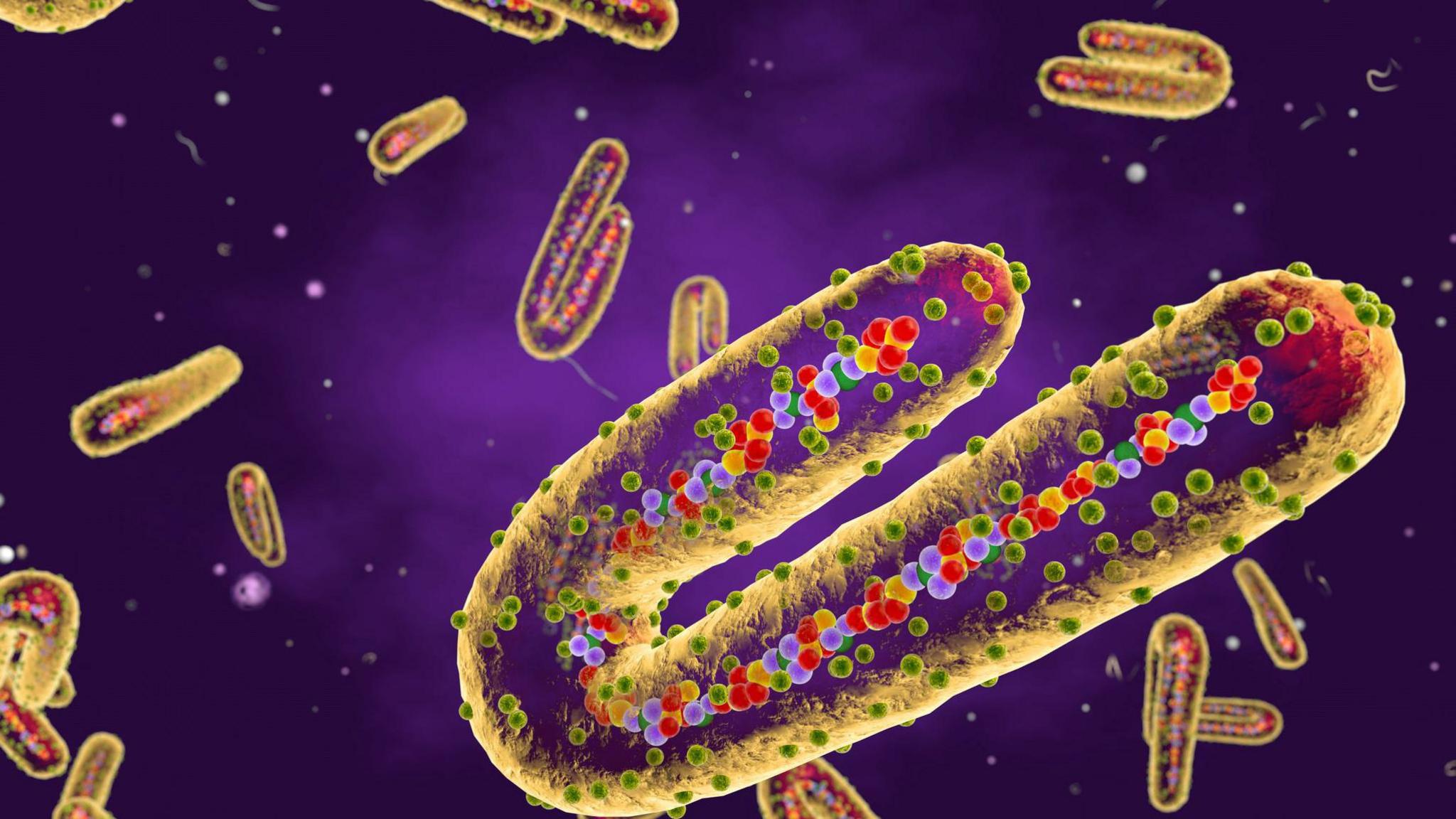
- Published23 November 2020
